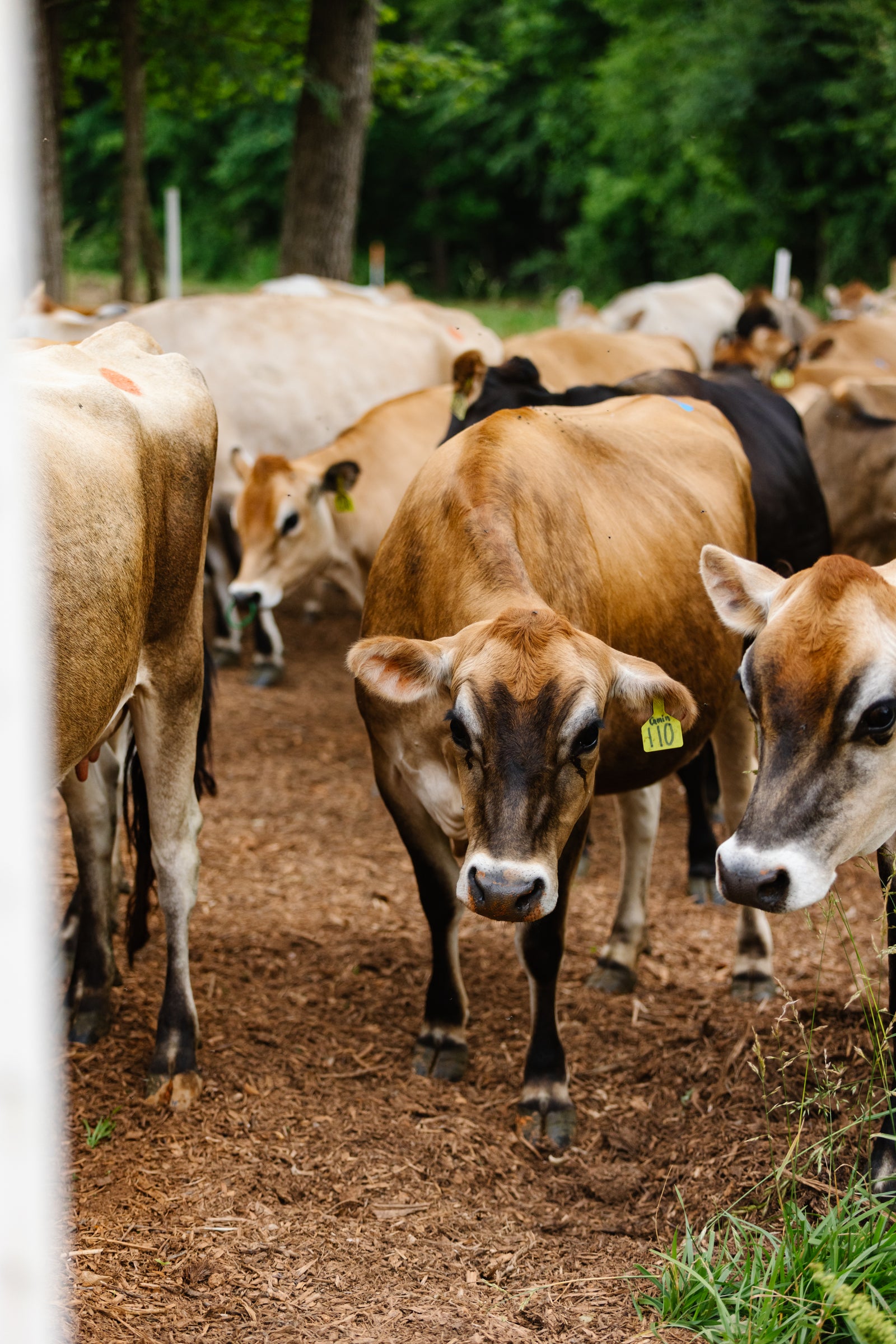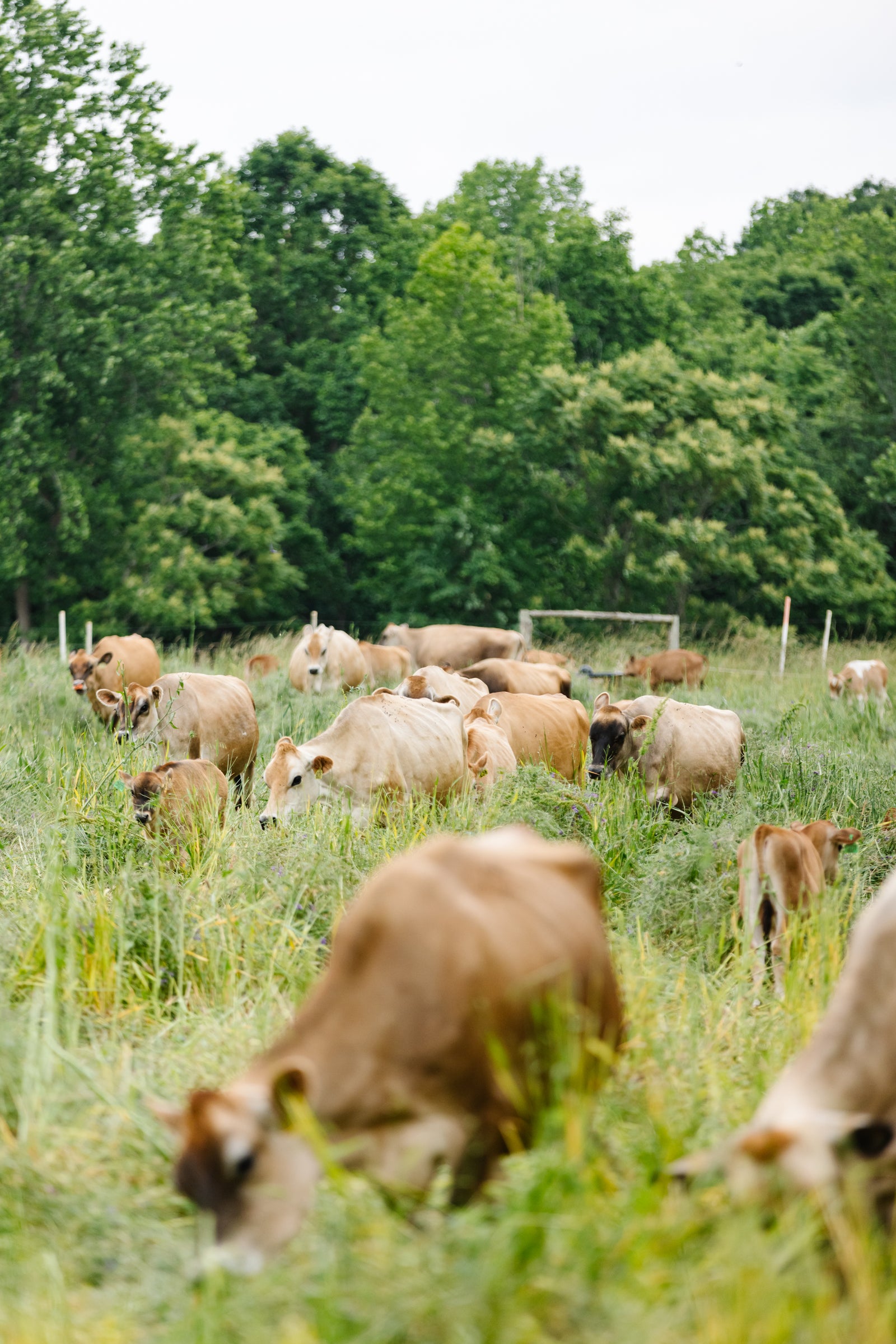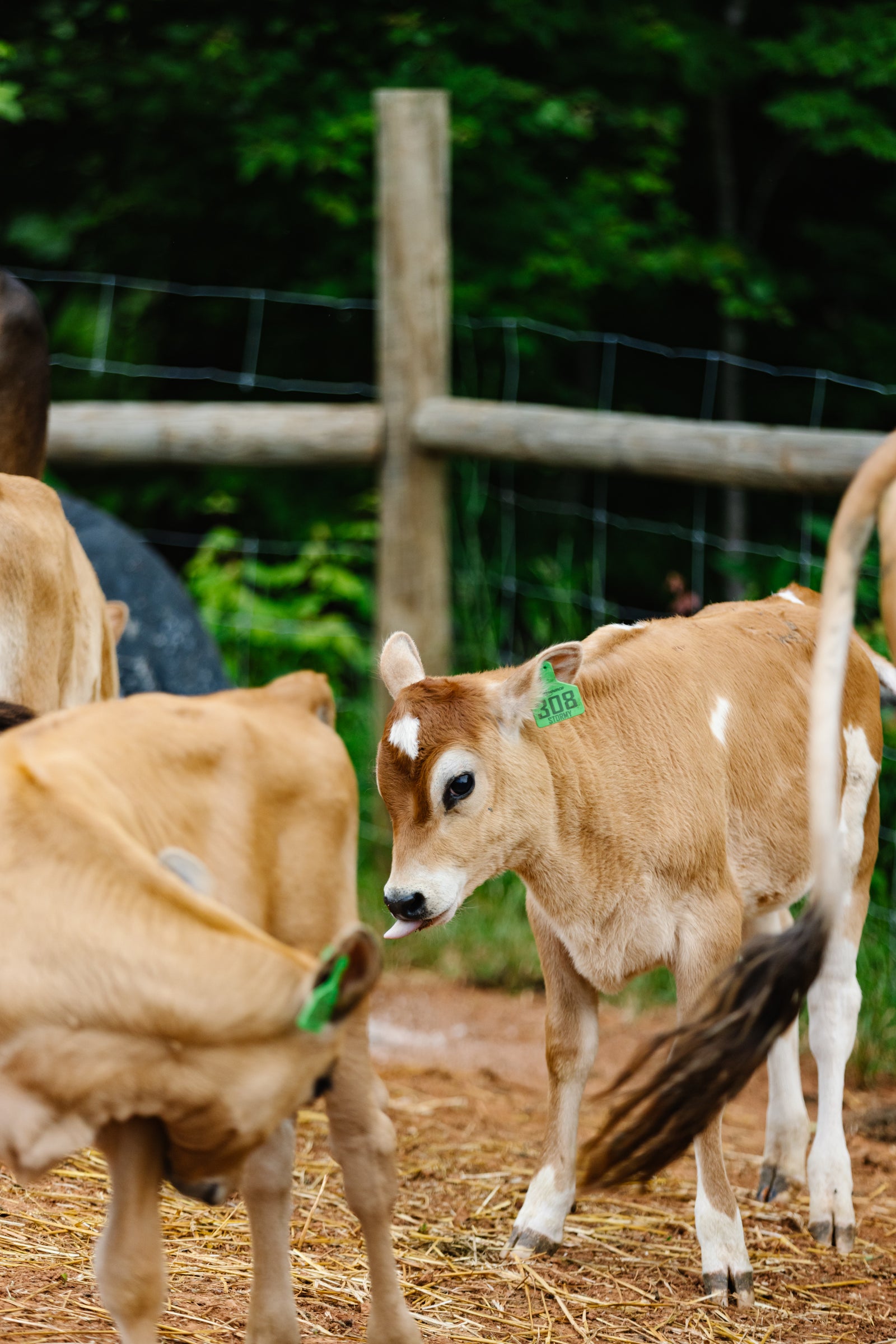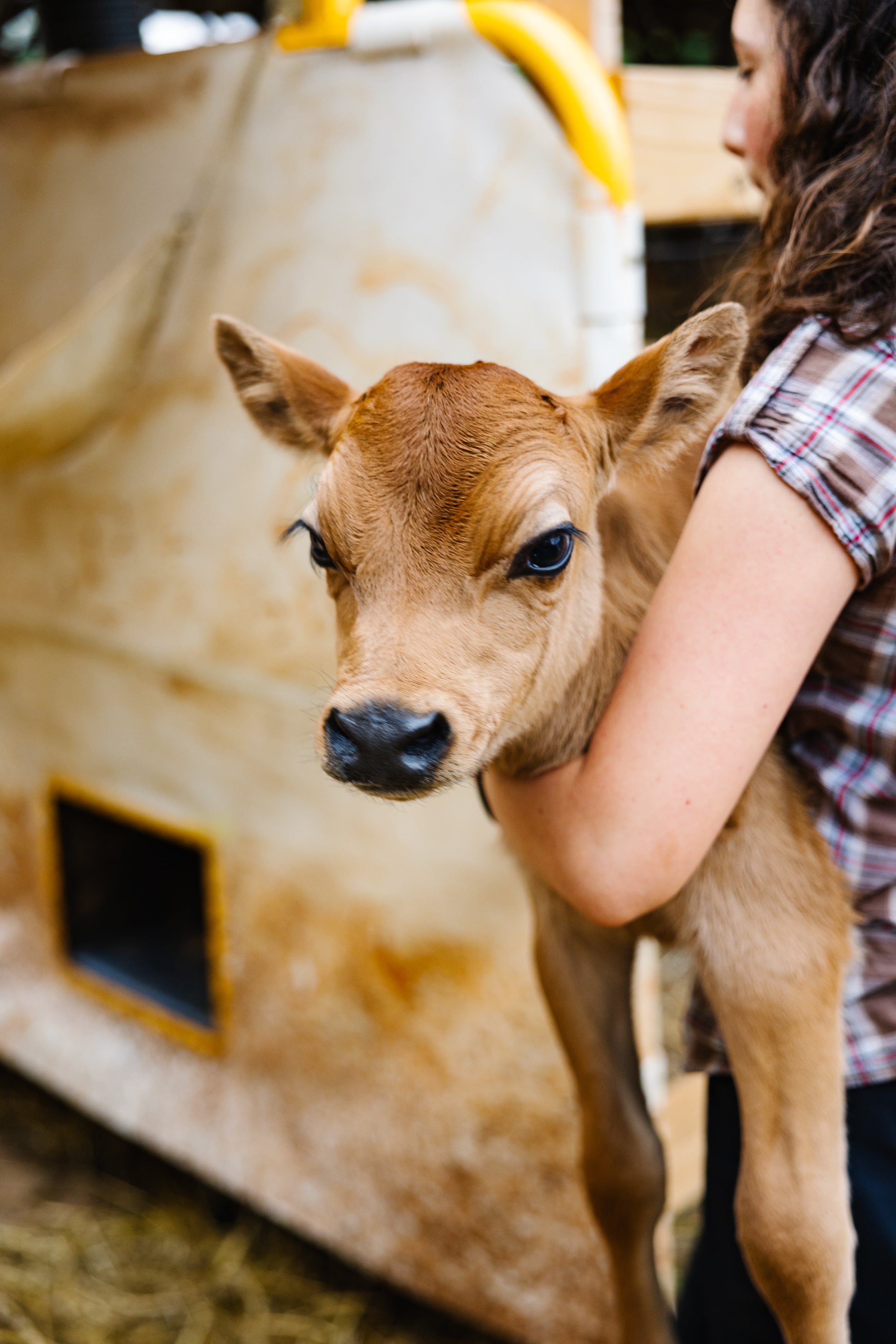Hue is still the vet: innovator and formulator of holistic treatments, resource for farmers and other veterinarians, as well as caretaker and milker of the farm’s A2A2, 100% grass-fed Jersey herd. And Suzanne is still the farmer: coordinating the nursing relationships of calves on their own dams, grazing and improving 250 acres of pasture and breeding her beloved Jersey cows to produce butter from sunshine.
The 500 acres they manage also includes...
A flock of primarily St. Croix sheep, Berkshire pigs, seven Great Pyrenees, four horses and 40 Jersey bulls of mixed ages that travel all over the U.S. and Canada, either on hoof or in straws, to breed more cows that can efficiently convert forage into high-component, high-cheese-yield milk.
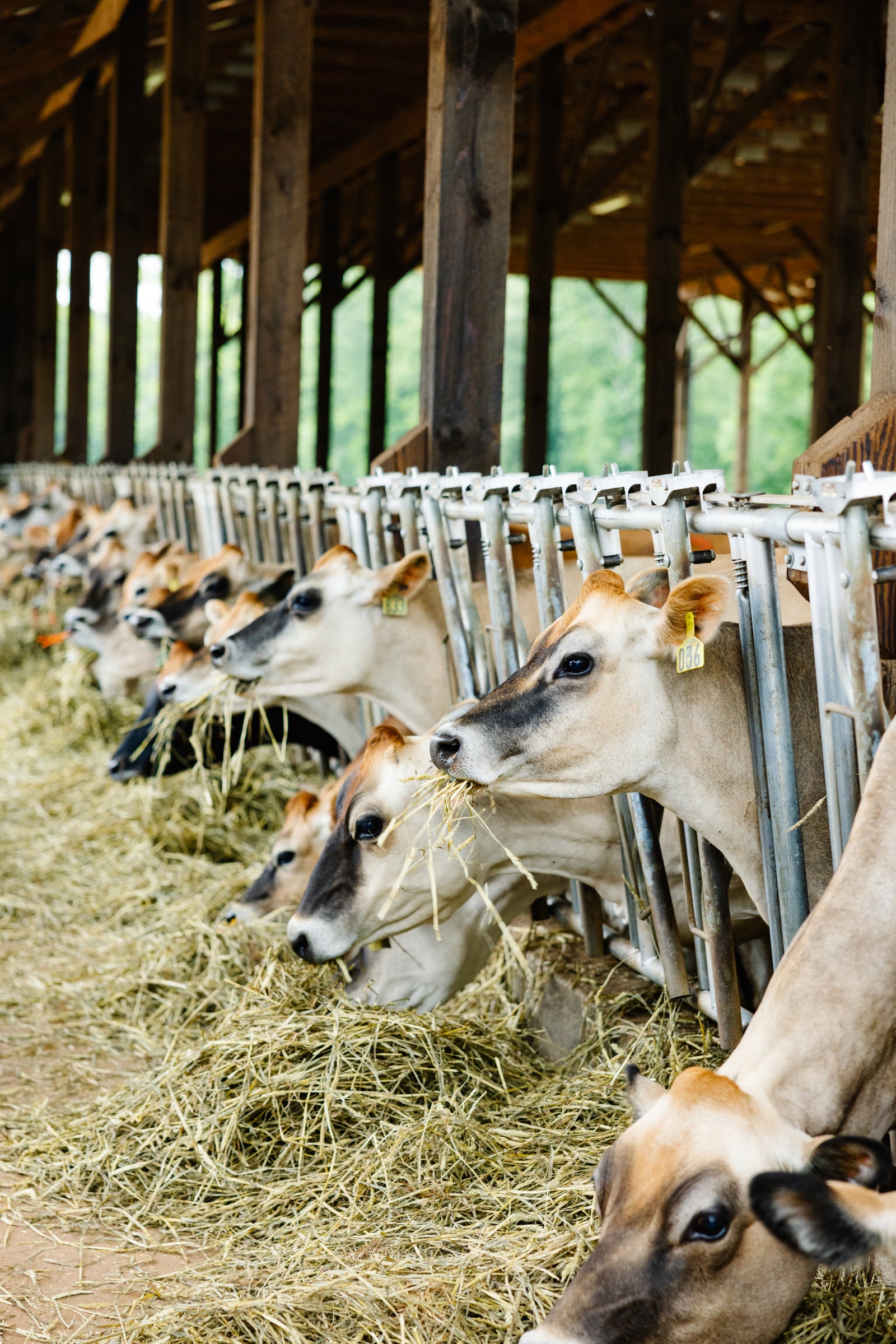
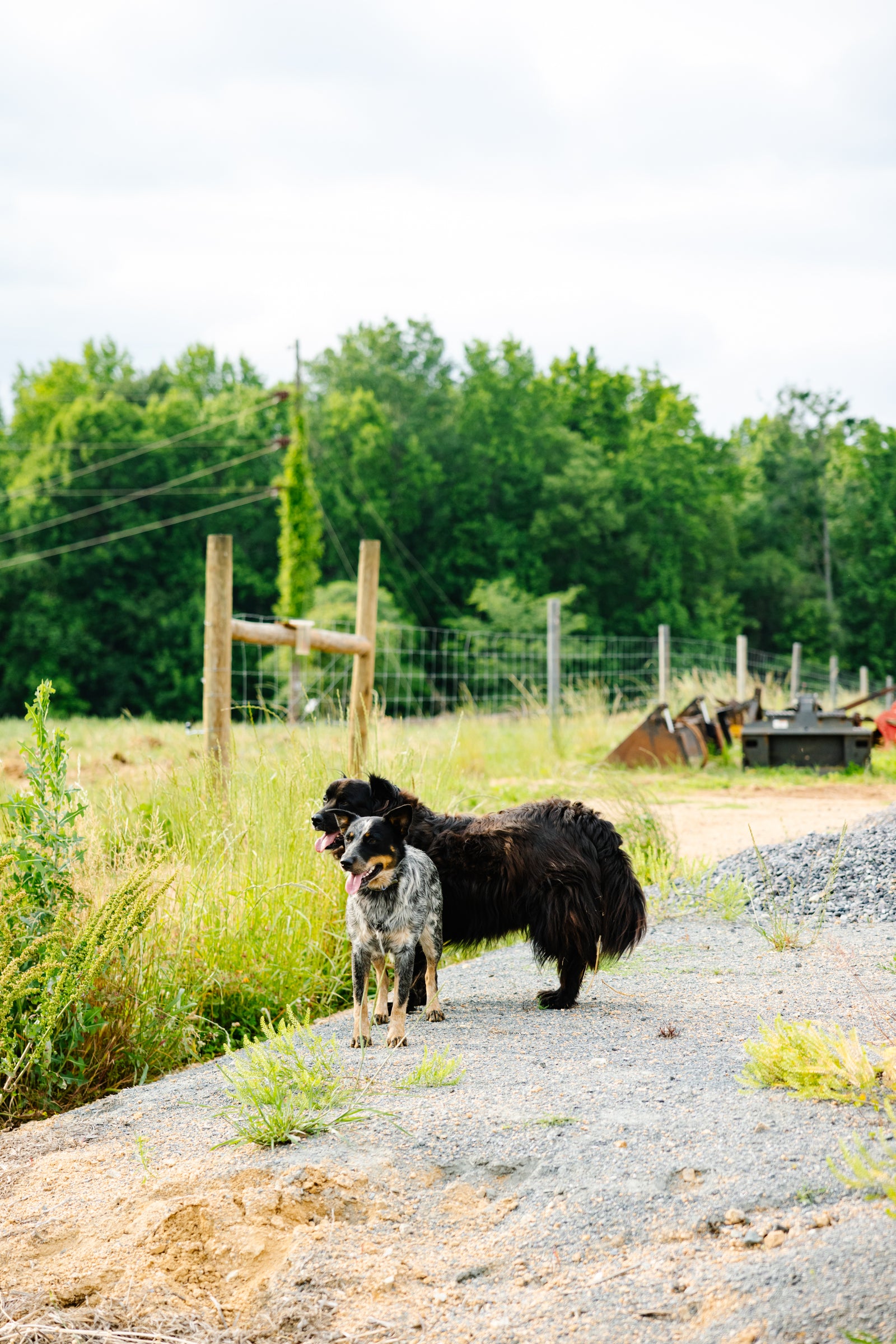
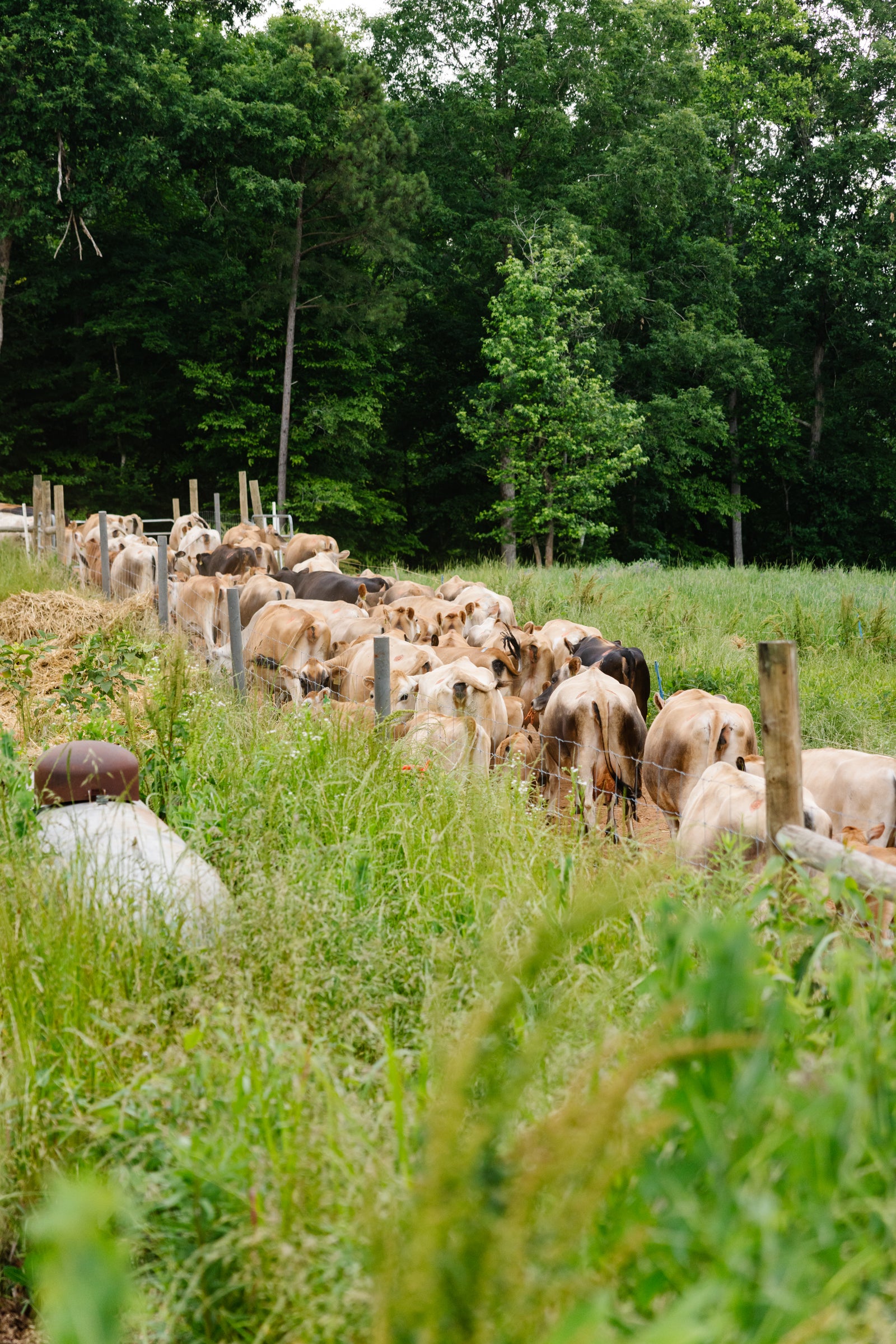
Piedmont of North Carolina
The farm, located in the Piedmont of North Carolina, started with a single family cow and a ¼-acre garden while Suzanne was pregnant. Vivian, who is now 15 years old, helps manage and milk the herd, runs the retail store and schools herself at home. Suzanne’s parents and brother are also involved, making the farm a three-generation livestock operation with the middle generation being the first to farm in several generations.
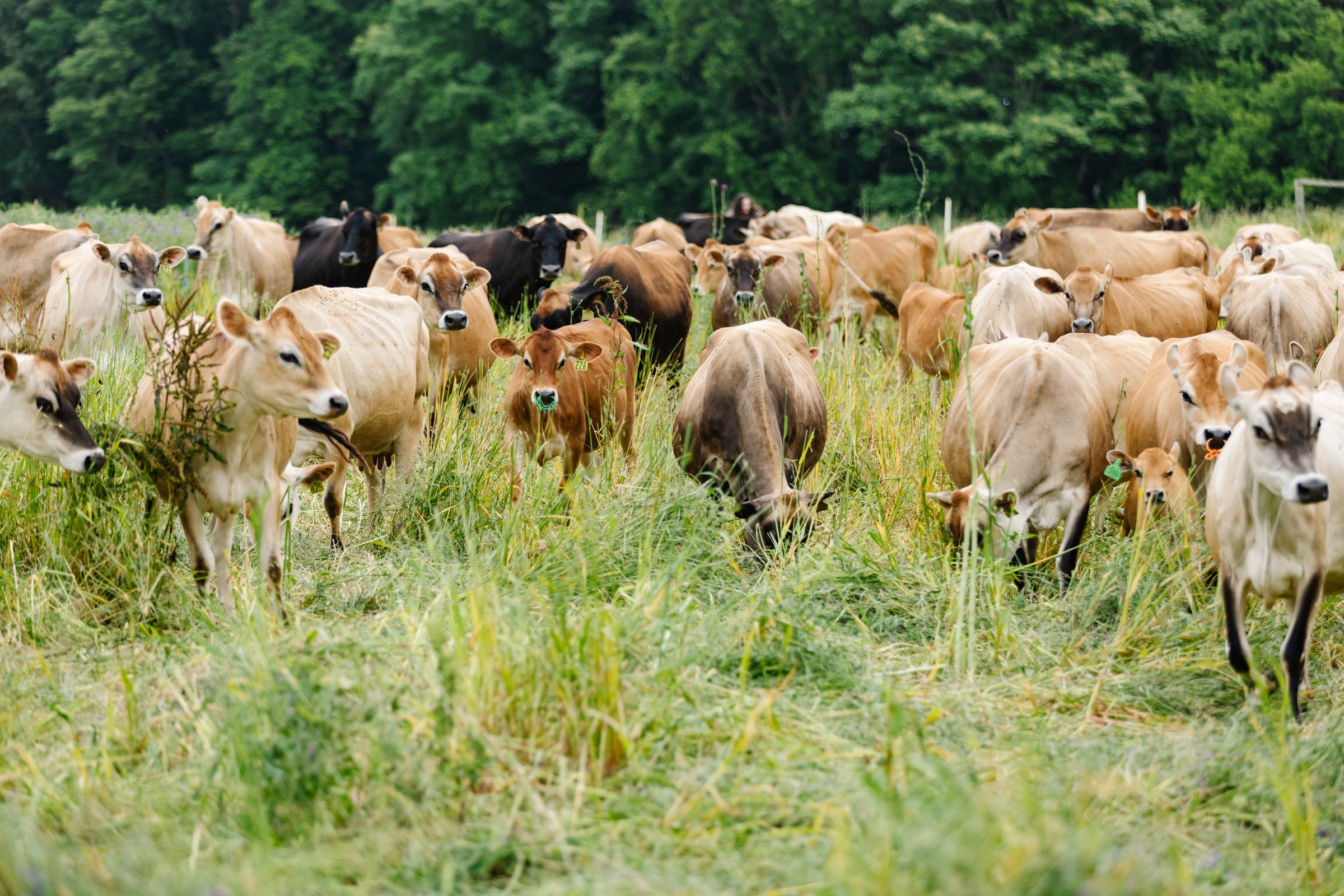
Where it began...
Hue and Suzanne both grew up in the northern suburbs — he outside Philadelphia and she Chicago — and a circuitous route brought them both to an agrarian life in a part of North Carolina more culturally rural than its proximity to Chapel Hill would suggest.
After getting a degree in soil science from the University of New Hampshire, Hue worked on dairy farms for six years, including in his parents’ homeland of Holland. He learned homeopathy, botanicals, and biologics on Seven Stars Farm in 1988, and it was there that he had a strong desire to go to vet school. After graduating from the University of Pennsylvania, he has bridged the holistic and conventional veterinary worlds with his pioneering work. He practiced “in the trenches” dairy medicine for more than two decades in Lancaster County, Pa., working with almost 100 certified organic Amish farms. From 2005 to 2010 he served as the chairman of the livestock subcommittee on the USDA National Organic Standards Board. He has written three books on natural treatments for dairy cows. His passion is reducing the reliance on antibiotics and synthetic hormones in livestock, and improving welfare.
Prior to farming, Suzanne was an investigative reporter on Capitol Hill in Washington, D.C. She covered money in politics and the “inside baseball” of the U.S. Congress for Roll Call Newspaper, then a subsidiary of The Economist. A couple of life-shattering encounters with the conventional medical system caused her to rethink the foundational role food plays in health, and she began a radical journey to grow food that at first led her to a year in New Orleans after Hurricane Katrina in 2006 and the following year moved to North Carolina. Never did she imagine her quest to eat eggs from chickens that ate organic feed on rotated pastures — and raw milk from a cow that ate only forage — would lead her down this circuitous path. Meeting Hubert brought it all together, and together they have stitched together a life they would never trade.
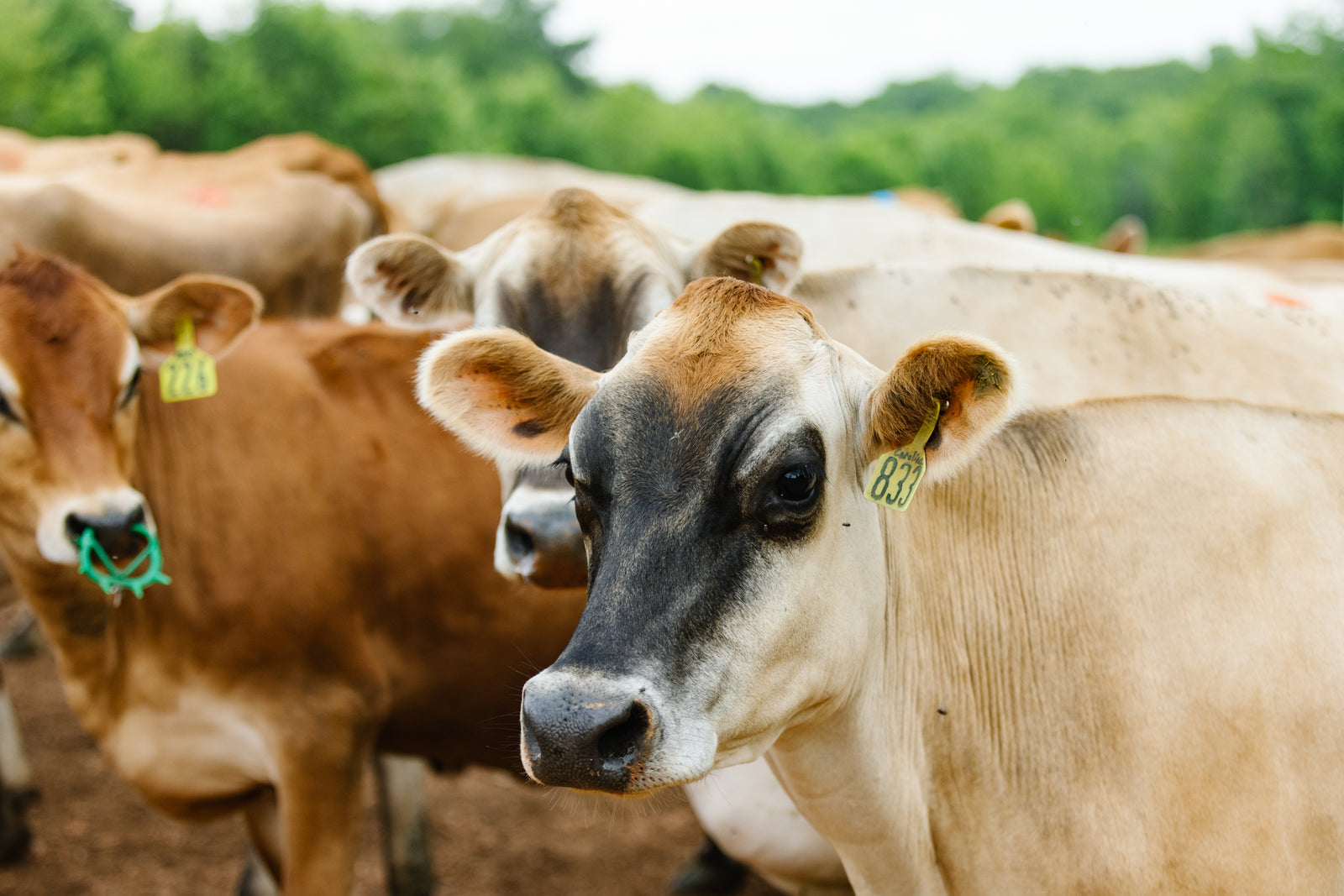
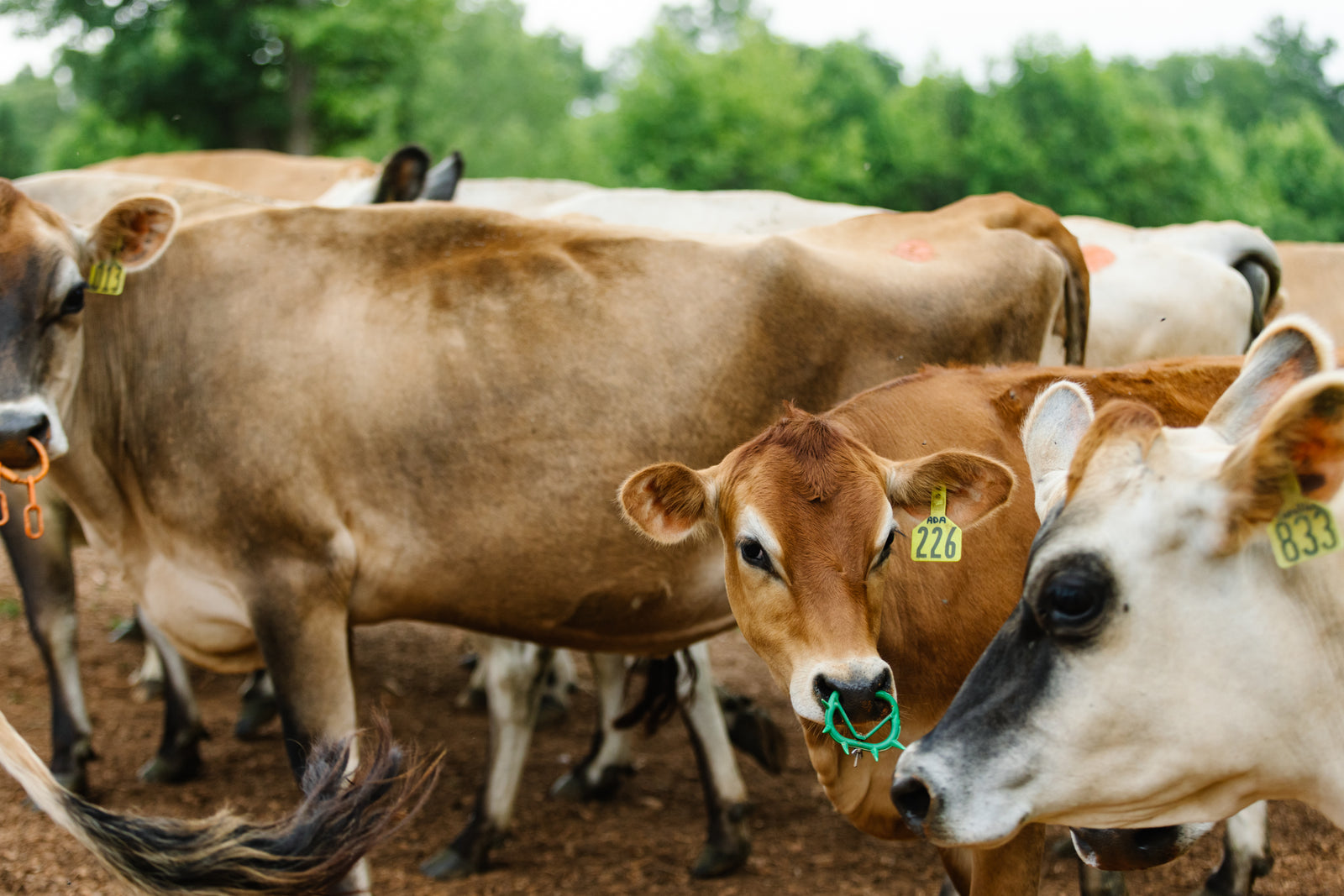
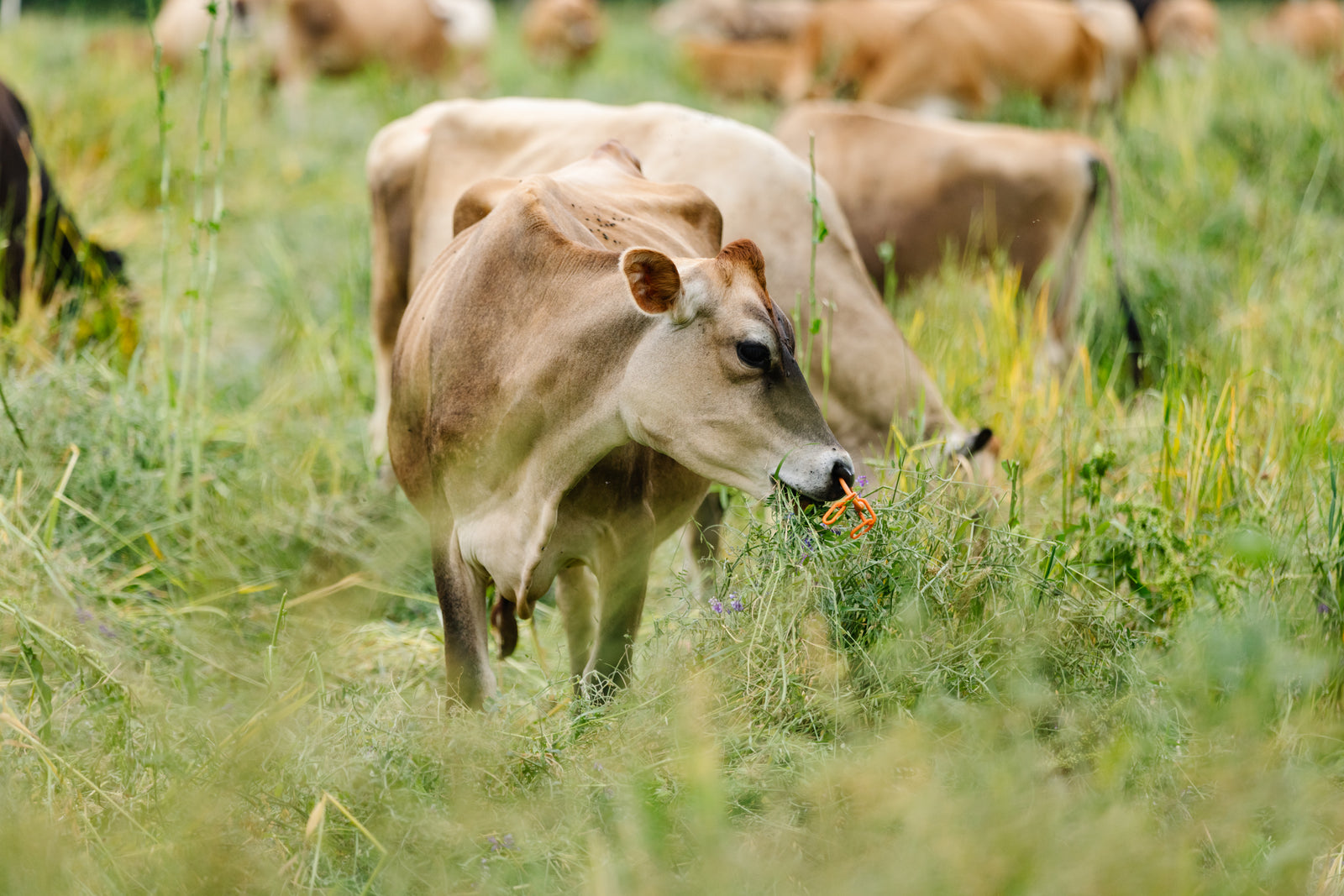
About Our Jerseys
One of the first things you’ll notice about our Jerseys is that they are all colors. The cows on the Isle of Jersey were not bred for appearance (including a standard color, as is common in most breeds of any species) as much as for function, and one of the beautiful consequences of going back to the Jersey breeding of old through many generations of selection for function is the return of the Jersey rainbow! The “black” coloring is called “mulberry” in the old herd books. The white came from the Isle of Guernsey, as the only way non-Jersey blood could get on the Island for more than a century was through a dowry, and it was almost culturally required for a bride’s family from Guernsey to send a cow as payment to a Jersey groom, and the white remains in purebred Jerseys to this day.
So if they weren’t bred for color, what were Jerseys selected for? Jerseys are the Dairy Queen because they are the most efficient cow in the world at converting grass into butter! A top-notch Jersey cow can produce up to 1,000 pounds of butter per year, on less-quality feedstuffs than commercial breeds such as Holsteins. Their milk is also rich in protein and makes excellent cheese.
Suzanne selected a Jersey cow named Greeley as her first cow because she was available locally from Chapel Hill Creamery, after looking at other more rare breeds. What she found along the way is that although Jersey cows are plentiful and certainly not in danger of extinction, like many breeds of heritage livestock, the heritage Jersey is very much in danger of extinction! Even the Isle of Jersey is now allowing non-island genetics, so the purity of the original and amazing Jersey cow is very much under threat.
Our foundation cows came from two other breeding programs we respect, and they have been hand-selecting Jerseys to perform on pasture, milk with high components and perform their jobs beautifully well into their teens for several decades. Suzanne has added her own criteria, including the cow’s ability to letdown her milk even though she knows she is about to see her calf, and we are the only farm to our awareness that specifically breeds for this trait — which is really another old-fashioned trait, as it used to be commonplace for cows to be milked alongside their young. Our cows are also selected to be well-mannered around their young and comfort themselves with the sweetness that has endeared Jersey cows to people the world over.
Our Land
There are no unsacred places, only sacred places and desecrated places. ~ Wendell Berry
Our land bore the history of the crops of southern extraction (corn, cotton, tobacco) and land-abusive set-stock cattle farming, and long before that likely the scars of extermination, as the Sissapahaw Indians disappeared along the river without a trace. What does it mean to heal land? Certainly more than healing soil, although that’s part of it, too. Healing the land means bringing back life in all its forms — livestock above and even more underground livestock below in the form of frolicing worms, bugs, and countless unidentified critters: LIFE! Apart from heaven, there is no safer place to store our treasure than in living soil. The foundation is built by loving a place — and the intimacy that arises from really knowing it.
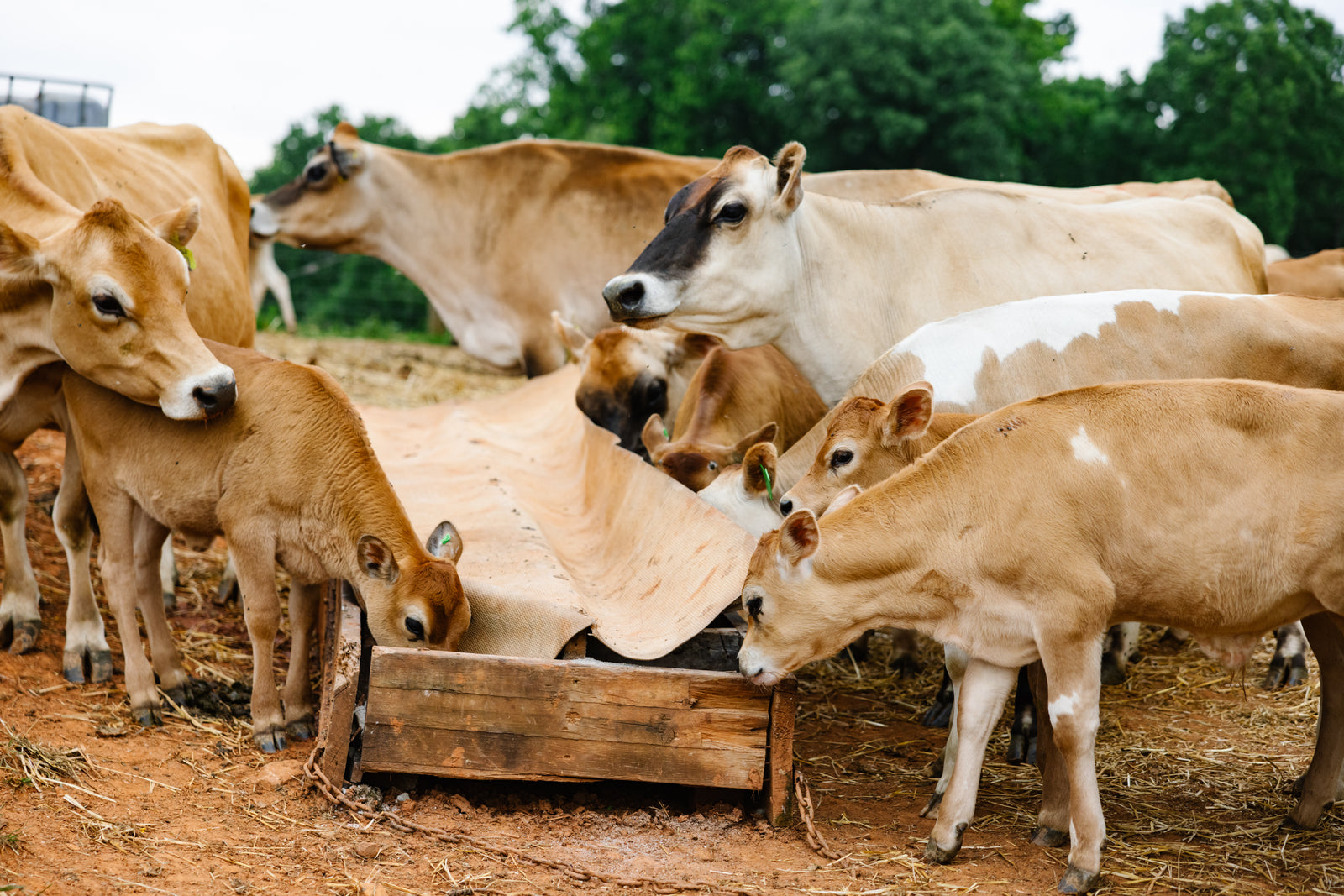
Our Mission
Esse quam videri. To be rather than to seem. That is the state motto of North Carolina, and it aptly fits the ethos of this farm. In a world of impressions, we long-ago determined that we would rather be something. We have an uncompromising reverence for all life. And part of that means we daily reconcile ourselves with the truth that there is no life without death, no rebirth without decay, no true joy without also reconciling ourselves with loss. Dairy cows have a way of equalizing our philosophies and humbling our dogma. We are committed to commerce as a higher calling, a way of relating that transcends the merely transactional and elevates our daily needs into real relationship. Together we are healing creation through land-restoring and life-affirming food.
